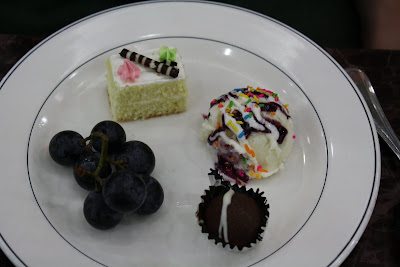This will most likely be the last post regarding the GRE exam. What more could I summate regarding this tedious test, you might ask? Without giving too much away... let's just say, there is more of a tale to recount than simply," I sat down, took a test, felt discouraged, and went home." In the United States, that rendition above, most likely would have been my prosaic tale, however, I did not take the GRE in the US. No, no no . Indeed,I took the test in Korea, the land where nothing is what it seems, and nothing, not even what would normally be an insipid event, goes as expected.

It began with the location of the building. I realize, that my credibility in finding places, even in my own country, where I am actually a literate and educated woman is tenuous at best. However, I'd looked up the location,and had two separate Koreans look up and draw out maps for me. I even had a Korean translated sentence asking for help to locate my elusive building. I figured that 30 minutes leeway for finding the building within walking distance of the subway would give me plenty of time. I wasn't late, but on that sticky, humid morning, waves of sweat poured off my brow as I searched, running in zigzags, stopping a Korean every few blocks to redirect me. Asking Koreans directions however, can be slippery as a freshly caught fish. Koreans are a nation of face-savers. They won't tell you, most of the time, "I don't know" if that's truly the case. Rather they will tell you a lie rather than show weakness. However, this practice is not so great when working within a strict time limit as one could be sent in every which direction. As I looked around desperately, I was met with a white face who assured me we were on the correct path.
Once seated in my assigned seat, I breathed a sigh of relief, the journey was over, it was time to parry with this demon of a test, armed with my mettle, my newly practiced math skills, and vocabulary. I never dreamt, however, that the test givers would augment upon the stress already yodeled across my slim shoulders.
The confusion began innocently enough. There were no spare pencils or erasers at this testing center. At the writing center weeks ago, each tester was provided pencils and scrap paper. However, at the test site testing well over two hundred anxious would-be-graduate students, there were but three spare number two pencils creating difficulties at the start. I for my part had brought several pencils, however most were mechanical, which, unbeknownst to me, were forbidden. Luckily I'd brought one normal, and another test taker spared me his extra.
The test instructions were read precipitously by a Korean man who's English was questionable, who also spoke with a distracting speech impediment. Our ears all strained, we listened intently only catching a few words here and there.
When it was time to start in fact, his words were so unclear, half the room, including myself, did not realize that we'd started. We'd been asking the supervisors if we were to receive scrap paper for the math section. We'd been told we were, although I don't believe they actually understood the question, for that much asked for scrap paper never materialized. A New Zealander's voice boomed from the back of the room, "Have we started?" When the answer turned out to be yes, huffing and puffing undulated around the room. The GRE is a strictly timed test. It is not to be taken lightly and every second is valuable. We'd lost at least a minute in figuring out we'd already started.
When the next section started, it was no different. The start was once again unclear, and according to the instructions, we were supposed to be allowed at least a minute break between the thirty minute intense sections. We were not allowed that break. My back ached from stress. Aggravating the situation to its consummate the already bending frustration bar, was the fact that the two men, while we took our agonizing test -that might well determine our future - choose to walk around asking for our passports and documentations. They didn't ask for this previous to our test taking, but rather in the midst of taking our timed test. More obscenities were hurled in their direction, including one rather intense "Your horrible, this is horrible." The frenzied energy of the room blackened. Positive vibes are desirable while taking a test, and I couldn't help but wonder what our test scores might have looked like in a brighter and well organized environment. Hopefully I'll never know, as I hope never to take the test again. But Korea proved, once again to take a mundane task, and stir in unwanted spices. Korea, Oh Korea, how you baffle me!








































